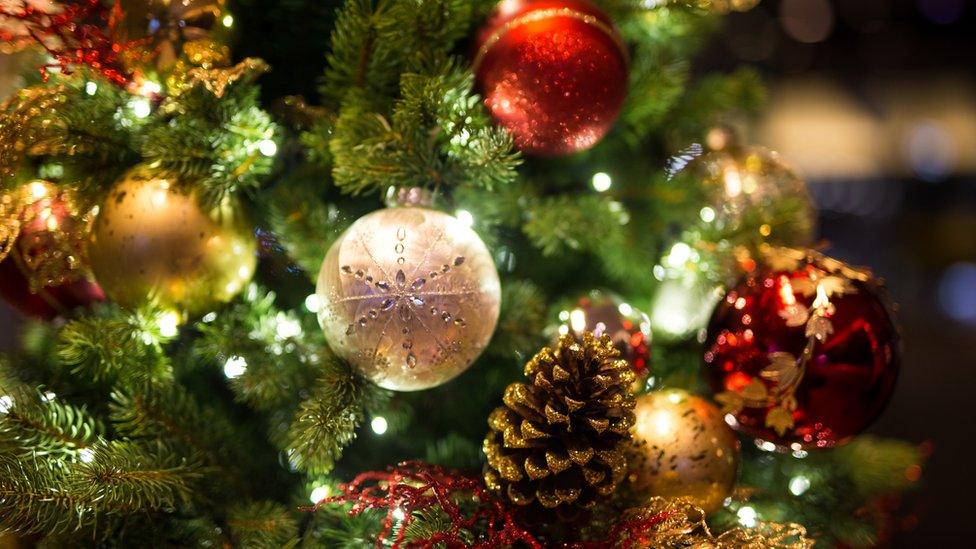Why do we have Christmas trees?
- Published

Decorated Christmas trees are one of the most famous symbols of the festive season
When you think of Christmas, one of the first images to spring to mind is probably a Christmas tree, covered in twinkly lights, funky decorations and shiny tinsel.
But where did the tradition of having a fir tree in our house and decorating it like this come from?
Many people think the tradition of Christmas trees in Britain started with the Victorians. This refers to the time when Queen Victoria was on the throne, from 1837 until 1901.
Prince Albert and Queen Victoria were very big fans of Christmas and made a lot of the traditions that we know today more popular
Queen Victoria and her husband Prince Albert were known to be very big fans of Christmas!
However, the tradition actually dates back further than that.
It originally came from Germany, where Prince Albert was actually born, and was introduced to England during the Georgian period, when King George III was on the throne.
The tradition of decorating a tree for Christmas comes from Germany
He had a German wife called Charlotte, who it is thought used to decorate a tree for her family in the 1790s.
But Queen Victoria and Prince Albert are said to be the ones who made it extremely popular and fashionable to decorate a tree at Christmas like this, which is why a lot of people think that they started the tradition in Britain.
This old photograph shows a family in 1947 gathered around their Christmas tree sharing their presents
At first, people used to put their trees on tables, as they were smaller. But when it became possible to get bigger trees from Norway, people began to put their trees on the floor, with presents underneath.
The reason that fir trees are traditionally used is because they are evergreen, which means they are still bright green with lots of leaves - even during the winter.
Traditional Christmas trees are evergreens, which means they keep their bright, green leaves in the winter, unlike other trees
Ever since 1947, Norway has donated a tree to London to say thank you for helping them during World War II.
A special ceremony is held in Norway in November, when the tree is cut down in the forest in Norway. Then, it comes over to the UK by sea, before being driven to London on a big lorry.
The Mayor of Oslo Marianne Borgen and the Lord Mayor of Westminster Steve Summers cut down 2016's Trafalgar Square Christmas tree in Oslo, Norway
It is then put up in Trafalgar Square in London using a special crane. It is decorated in the traditional Norwegian way, with strings of lights going down the tree, rather than criss-crossing it.
- Published28 November 2015
- Published18 January 2016
- Published2 January 2022
